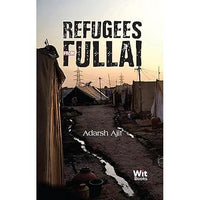We've sent you an email with a link to update your password.
Reset your password
We will send you an email to reset your password.
This website uses cookies to ensure you get the best experience on our website.
Learn More
- Home
-
-
- Action & Adventure
- Biographies & Autobiographies
- Business
- Children's Book
- Civics & Citizenship for Kids
- Crime/Thriller
- History
- Inspirational/Self Help
- Literature
- Medicine & Health Sciences
- Motivational
- Mystery and Thriller
- Mythology
- Personal Development & Self Help
- Philosophy
- Poetry
- Politics
- Romance
- Science
- Sociology
- Spirituality and Religion
- Teen and Young Adults
- Test Preparation/Armed Forces
- Thriller
- Travelogue
- Young Adults
-
- Academic
- Biographies & Autobiographies
- Business
- Children's Book
- Civics & Citizenship for Kids
- Coffee Table Book
- Constitutional Law
- Economics/History
- Educational Philosophy
- Engineering & Technology
- Environment
- Environmental Science
- Film Criticism
- Gender
- Health & Wellness
- History
- Law
- Literature
- Management
- Media Studies
- Memoir
- Military History
- Military Science
- Motivational
- Sociology
- Philosophy
- Political Ideologies
- Politics
- Religion
- Self help
- Spirituality and Religion
- Teen and Young Adults
- True Accounts
-
- Contact Us
- Sign In
- Register
- choosing a selection results in a full page refresh










